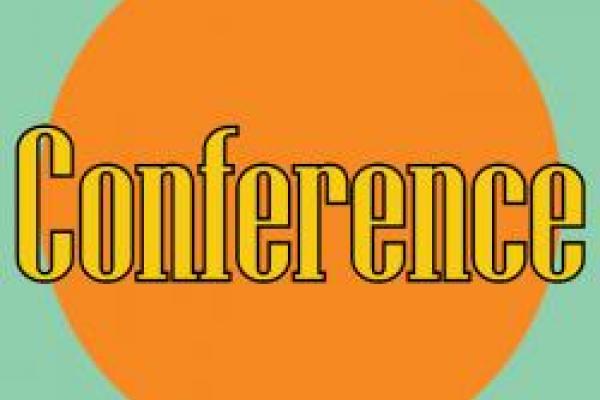
Full texts of the Conference Papers are available in the OSU Knowledge Bank.
This international conference assembles scholar-practitioners from Europe and Asia to discuss the political uses of culture archives. Not just the dusty preserve of researchers, archives define and discipline national identities, shape and censor national memories, but also preserve cultural alternatives for future recovery. Their contents and uses are tensely negotiated between states, scholars, and citizens. Today archives have become key sites for the reconstruction of cultures and identities in transition. Emphasizing socialist and post-socialist settings, this comparative critical conversation brings together the actors inescapably involved in the instrumentalization of folklore: archivists working in state institutions with a mandate to preserve the national culture.
The first day will address the roots of culture archives in nation-building, their revision in the service of state projects, and the strategies of evasion and concealment that undermined such projects. On the second day, we discuss the current situation: the transition from state support to a market economy; a national mandate versus the need for internal and international reconciliation; the desire to construct a satisfying local culture against both international pressures and a repudiated recent past; the unforeseen consequences of objectifying culture and its practitioners; and the tension between preservation and circulation. The third day will be devoted to archival practice, with informal presentation of current projects and discussion of preservation, access, and collection management. Proceedings will be published online, with technical support from the American Folklore Society and other international folklore organizations.
The Center for Folklore Studies is grateful to the Mershon Center for primary funding. Additional support has been generously provided by the Office of International Affairs, the Center for Slavic and Eastern European Studies, CIRIT, the Center for Middle Eastern Studies, and the departments of Near Eastern Languages and Cultures, Slavic Languages and Literatures, and East Asian Languages and Literatures. External support comes from the American Folklore Society and the American Folklife Center at the Library of Congress.
To register for the conference lunches, please contact Center Assistant Sheila Bock at smbock99@yahoo.com. We suggest that outside attendees register at the University Plaza Hotel, where conference participants will be staying.
Preliminary Program
Thursday May 3. Foundations: Making Culture, Making the State
- 10:30-12:30 Nationalism, Colonialism, and the Folklore Archive
- Introduction
Dorothy Noyes, Director, the Center for Folklore Studies
Margaret Mills, Department of Near Eastern Languages and Cultures - Archiving Living Traditions: The Finnish Model Over Time.
Lauri Harvilahti, Folklore Archives, Finnish Literature Society, Helsinki - Emergent Events and the Folklore Archive in Bengal.
Roma Chatterji, Department of Sociology, Delhi School of Economics, University of Delhi - 2:00-4:00 Index-Card Utopias: The Archives Under Socialism
- Archiving a Utopian Land: Some Considerations on Romanian Collectivization Songs.
Anca Stere, University of Bucharest - The Cluj (Romania) Folklore Archive in the Totalitarian Period.
Alina Branda, Department of Cultural Anthropology, Babes-Bolyai University, Cluj - Tradition, Archives, and Political Change: National and Finno-Ugric Paradigms Shaping the Estonian Folklore Archives.
Ergo-Hart Västrik, Estonian Folklore Archives, Estonian Literary Museum, Tartu - 4:30-6:00 Keynote address
- Welcome
Rick Herrmann, Director of the Mershon Center, and John Roberts, Dean, College of Humanities - Property and Propriety: Reflections on Archived and Archival Cultures
Regina Bendix, Institut für Kulturanthropologie und Europäische Ethnologie, Georg-August Universität, Göttingen - 6:00 Reception
Friday May 4. After 1989: Recycling National Projects
- 9:30-12:00 Recovery, Rehabilitation, Repatriation
- Student Folklore Archives in Soviet and Post-Soviet Russia
Yelena Minyonok, Institute of World Literature, Russian Academy of Sciences - Archives and Political Change: The Case of the Radio Afghanistan Archives.
Taj Mohammad Ahmadzada, Manager of the Radio Archive, Radio-TV Afghanistan, and Lorraine Sakata, UCLA (emerita) - Chinese Everyday Life and (Post-)Modern Encounters: A Story of "Cultural Survivals".
Gao Bingzhong, Institute of Sociology and Anthropology, Beijing University - Legislating (for) the Folk: The American Folklife Center in the US National Imaginary.
Guha Shankar and Margaret Kruesi, American Folklife Center, Library of Congress - 1:30-3:30 The Return of the Repressed: Archives and National Memory
- Archives and the Burden of Interpretation: Why Can’t Ethnographic Documents Help in the Reconstruction of Croatian National Memory During Socialism?.
Renata Jambresic Kirin, Institute of Ethnology and Folklore Research, Zagreb - The Politics of Archiving Ephemera in Times of Crisis: The Case of the "Mourning Archive," a research project on the mourning rituals in the aftermath of March 11th, 2004 train bombing in Madrid.
Cristina Sánchez-Carretero, Department of Anthropology, Consejo Superior de Investigaciones Científicas, Madrid - 3:30-5:00 Coffee and free discussion with the visitors &aa
Saturday May 5. Archives in Practice: Current Projects and Procedures
- 9:00-11:00
Ethics and Access: Meeting Practical Challenges in Ethnographic Archives (Workshop).
Guha Shankar and Maggie Kruesi, American Folklife Center, Library of Congress - 11:00-12:30
At Last! The Vermont Folklife Center Online Digital Archive.
Andy Kolovos, Vermont Folklife Center - A Computer Program for the Preservation and Analysis of Russian Folk Music
Yelena Minyonok, Institute of World Literature, Russian Academy of Sciences - Cultural Archives and the Challenges of the Future
Lauri Harvilahti, Finnish Literature Society. Folklore Archives - 2:00-3:30 Conclusions
